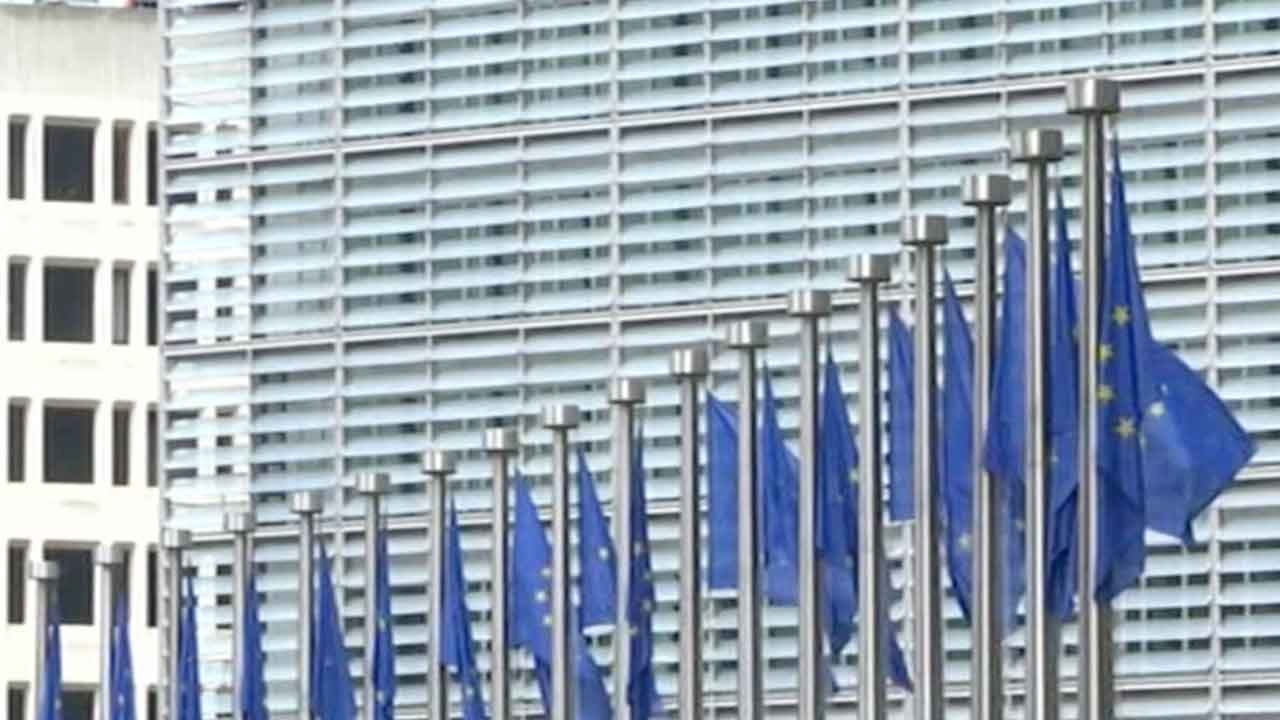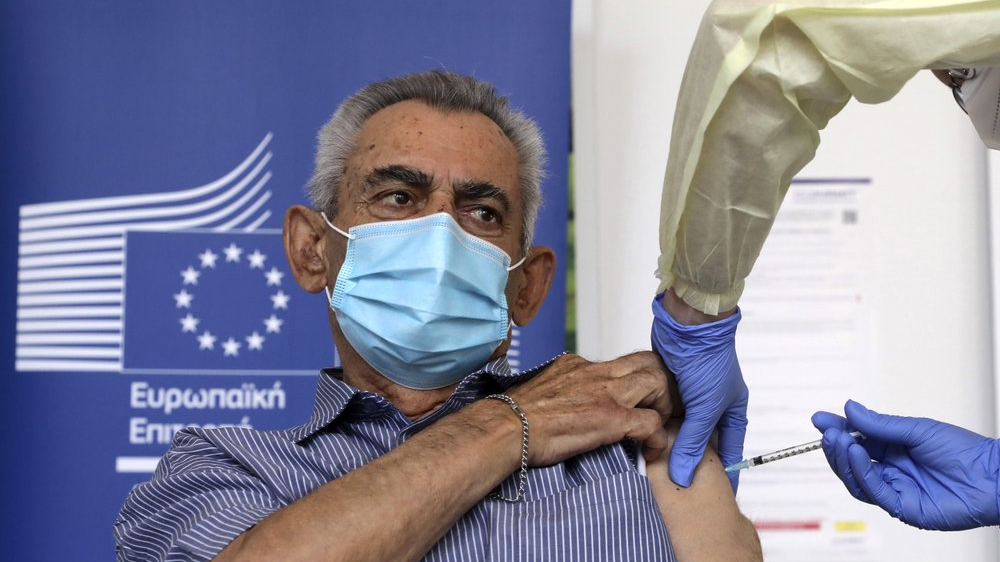
Editor's note: Jonathan Arnott is a former member of the European Parliament. The article reflects the author's opinions, and not necessarily the views of CGTN.
The European Union is embroiled in something of a political crisis. Globally, the European Union (EU) is lagging behind when it comes to vaccine rollouts. As of February 22 (the latest day for which comparable figures are available), the EU had administered 6.25 doses per hundred people in the total population. For political reasons, it is often compared to the U.S. (19.39 doses) and the United Kingdom (27.34 doses).
This has led to fragmentation between various EU nations, with some – such as Hungary – deciding to go alone. So far, Hungary's vaccine figures (6.86 doses) look only slightly better than the EU average. As I write, though, it is beginning to administer the vaccine from China's Sinopharm.
Hungary is clearly confident that its numbers will improve. The EU as a whole is unlikely to switch efforts to obtaining China's vaccine, but other EU nations will be watching the rollout in Hungary carefully.
Whilst a German Green member of the European Parliament accused Hungary of being "motivated by geo-political posturing" rather than by real health concerns, the evidence will soon be available one way or another. If Hungary's vaccine cooperation with Russia and China proves to be effective, other Eastern European nations at least are likely to follow suit.
The situation has been seized upon by Euroskeptics, who argue that national vaccine procurement (as in the UK) has proven to be far more effective than a cumbersome one-size-fits-all approach.
The EU has "ambitious" plans of its own to deal with the situation but, as ever, they have left themselves a get-out clause. Their plans, they say, are dependent upon national infrastructures for actually delivering the vaccines on time. In practice, richer EU nations will eventually do better than poorer ones. Meanwhile, the assaults on the "British" AstraZeneca vaccine in the French and German press have left many Germans in particular refusing to take that vaccine when offered, further slowing the rollout.
Now, though, there is little point in the EU summit raking over past problems. They must look to the future. One of the European Union's fundamental principles is "freedom of movement" between its member states.
On February 23, the EU Justice Commissioner Didier Reynders said ahead of a virtual summit of EU heads of states and governments: "The commission wants to recall to the European member states that it is a necessity to go back to a coordinated approach on all the measures taken in relation to the free movement of people and goods."

Andreas Raounas, 84, receives the Pfizer-BioNTech vaccine against COVID-19 as the first patient in Cyprus to do so, at a care home in Nicosia, Cyprus, December 27, 2020. /AP
Andreas Raounas, 84, receives the Pfizer-BioNTech vaccine against COVID-19 as the first patient in Cyprus to do so, at a care home in Nicosia, Cyprus, December 27, 2020. /AP
The commission had, he revealed, sent letters to Germany, Belgium, Sweden, Hungary, Finland and Denmark to ask them to reverse extra travel restrictions that have hampered cross-border workers who usually commute to work.
Other countries, though, are keen to head in the opposite direction. Greece in particular, which will receive backing and a sympathetic ear from other Mediterranean nations dependent on tourism income, is keen to introduce some kind of "vaccine passport" to enable international travel. Roughly 20 percent of Greek GDP comes from tourism: with such dependence, losing the summer season in 2021 would be a disaster.
The good news for EU leaders is that the various national interests might well prove to be compatible with each other. If they can indeed distribute vaccines faster, then – as infection rates might naturally fall with the end of winter and warmer temperatures – some easing of restrictions will naturally follow. There may still be time for a "vaccine passport" scheme to be introduced to save the 2021 summer tourist season.
A political compromise can surely be found. The real question for the months ahead is not about political will, but about logistics. Does the EU (both collectively and its individual member states) have the operational capacity to overcome the current crisis in a short time frame?
There may be minor disagreements at this virtual summit, and there may be some tensions caused by differing priorities, but all countries have broadly the same aims. The outcome of this summit should not be judged by the political agreement. The issue is one of competence: the summit's success or failure will only become clear much later, with the benefit of hindsight, once we have seen whether or not the words turn into actions.
(If you want to contribute and have specific expertise, please contact us at opinions@cgtn.com.)

